Synth-pop is a music genre that first became prominent in the late 1970s and features the synthesizer as the dominant musical instrument. It was prefigured in the 1960s and early 1970s by the use of synthesizers in progressive rock, electronic, art rock, disco, and particularly the Krautrock of bands like Kraftwerk. It arose as a distinct genre in Japan and the United Kingdom in the post-punk era as part of the new wave movement of the late 1970s.

Daft Punk were a French electronic music duo formed in 1993 in Paris by Thomas Bangalter and Guy-Manuel de Homem-Christo. They achieved early popularity in the late 1990s as part of the French house movement, combining elements of house music with funk, disco, techno, rock and synth-pop. The duo garnered further acclaim and commercial success and are now regarded as one of the most influential acts in dance music history.

Switched-On Bach is the debut album by American composer Wendy Carlos, originally released in October 1968 by Columbia Records. Produced by Carlos and Rachel Elkind, the album is a collection of pieces by Johann Sebastian Bach performed by Carlos and Benjamin Folkman on a Moog synthesizer. It played a key role in bringing synthesizers to popular music, which had until then been mostly used in experimental music.

The Moog Cookbook was an American electronic duo consisting of Meco Eno and Uli Nomi. The project was a parody of and tribute to the novelty Moog records of the late 1960s and early 1970s, which featured cover versions of popular songs using the then-new Moog synthesizer.

Ye Olde Space Bande is the second album by the Moog Cookbook, released in 1997. It is a selection of covers of classic rock tracks remade using Moog synthesizers and other analog synthesizers. It featured contributions from Devo's Mark Mothersbaugh, who plays on the duo's version of Van Halen's "Ain't Talkin' 'bout Love", to computerized vocal samples by Michael Penn. Other musicians featured on album were the MC5's Wayne Kramer, the Go-Gos' Charlotte Caffey, and the Eels' Mark Oliver Everett.
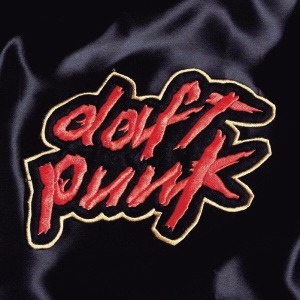
Homework is the debut studio album by the French electronic music duo Daft Punk, released on 20 January 1997 by Virgin Records and Soma Quality Recordings. It was later released in the United States on 25 March 1997. As the duo's first project on a major label, they produced the album's tracks without plans to release them, but after initially considering releasing them as separate singles, they considered the material good enough for an album.
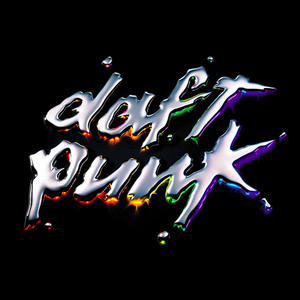
Discovery is the second studio album by the French electronic music duo Daft Punk, released on 12 March 2001 by Virgin Records. It marked a shift from the Chicago house of their first album, Homework (1997), to a house style more heavily inspired by disco, post-disco, garage house, and R&B. Thomas Bangalter of Daft Punk described Discovery as an exploration of song structures, musical forms and childhood nostalgia, compared to the "raw" electronic music of Homework.
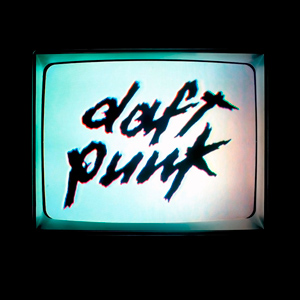
Human After All is the third studio album by French electronic music duo Daft Punk, first released on 14 March 2005 through Virgin Records. Unlike their previous studio album Discovery (2001), whose sound was inspired by disco and garage house and produced over the period of two years, Human After All was more minimalistic and improvisational with a mixture of heavier guitars and electronics, and was produced in six weeks.

Thomas Bangalter is a French musician, record producer, singer, songwriter, DJ and composer. He is best known as one half of the former French house music duo Daft Punk, alongside Guy-Manuel de Homem-Christo. He has recorded and released music as a member of the trio Stardust, the duo Together, as well as a solo artist. Bangalter's work has influenced a wide range of artists in various genres.

"Robot Rock" is the lead single from Daft Punk's third studio album Human After All. The single was released initially on 11 April 2005 with a music video, directed by and featuring the duo, preceding the single's release. While the single reached a moderately high chart position, many critics found the song overly repetitive when compared to songs from their other studio albums at the time. It features a sample of "Release the Beast" performed by Breakwater.
Roger Joseph Manning Jr. is an American keyboardist, singer, and songwriter who co-founded the bands Jellyfish, the Moog Cookbook, and Imperial Drag. He has also spent several years as a member of Beck's backing band, contributed to several recordings by the band Air, and toured or recorded with acts such as Jay-Z, Blink 182, and Johnny Cash. In 2005, he released his first solo record, Solid State Warrior, followed with Robo-Sapiens, Catnip Dynamite (2008), and Glamping (2018). He is usually credited by his full name to avoid confusion with the folk musician Roger Manning.

The use of electronic music technology in rock music coincided with the practical availability of electronic musical instruments and the genre's emergence as a distinct style. Rock music has been highly dependent on technological developments, particularly the invention and refinement of the synthesizer, the development of the MIDI digital format and computer technology.
Blow Up Records is a British independent record label, that was established in London in May 1994, by Blow Up club founder and DJ Paul Tunkin. There is also an affiliated music publishing company Blow Up Songs.

Tron: Legacy is the soundtrack album to the 2010 film of the same name, released by Walt Disney Records on December 3, 2010. It is the only film score by French music duo Daft Punk.
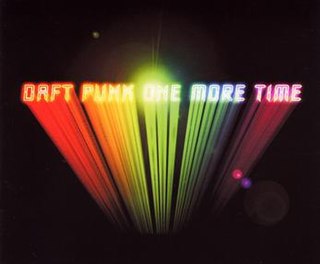
"One More Time" is a song by the French electronic music duo Daft Punk, released as the lead single from their second studio album, Discovery (2001), on 13 November 2000. It was shipped to radio in January 2001. It is a French house song featuring an auto-tuned vocal performance by Romanthony and a sample of "More Spell on You" by Eddie Johns. The music video forms part of the 2003 anime film Interstella 5555: The 5tory of the 5ecret 5tar 5ystem. "One More Time" reached number one on the French Singles Chart, number two on the UK Singles Chart, and number 61 on the US Billboard Hot 100.
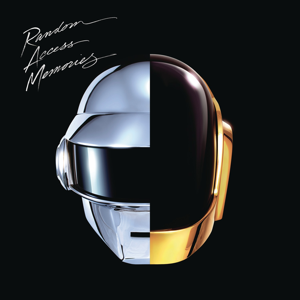
Random Access Memories is the fourth and final studio album by the French electronic music duo Daft Punk, released on 17 May 2013 through Columbia Records. It pays tribute to late 1970s and early 1980s American music, particularly from Los Angeles. This theme is reflected in the album's packaging, as well as its promotional campaign, which included billboards, television advertisements and a web series. Recording sessions took place from 2008 to 2012 at Henson, Conway and Capitol Studios in California, Electric Lady Studios in New York City, and Gang Recording Studio in Paris, France.

"Get Lucky" is a song written and performed by French electronic music duo Daft Punk featuring American singer Pharrell Williams and American musician Nile Rodgers. Daft Punk released the song as the lead single from their fourth and final studio album, Random Access Memories, on 19 April 2013. Before its release as a single, it was featured in television advertisements broadcast during Saturday Night Live, after which Rodgers and Williams announced their involvement in the track. "Get Lucky" is a house-inspired disco, funk, and pop track with lyrics that, according to Williams, are about the good fortune of connecting with someone, as well as sexual chemistry. Upon release, it received widespread acclaim from critics, who praised Williams's vocals and Rodgers's guitar riffs.

"Doin' It Right" is a song written and performed by French electronic music duo Daft Punk and American musician Panda Bear of the band Animal Collective. It is a track on Daft Punk's fourth studio album Random Access Memories (2013), and was the last to be recorded for the album. The song was distributed to American alternative radio stations on 3 September 2013 as the third single from Random Access Memories. Prior to this, it appeared on record charts in France, the United States and the United Kingdom due to digital downloads of the album. "Doin' It Right" received a positive critical reception, with some reviewers opining it as the group's best work out of the entire LP.
"Contact" is a song by French electronic music duo Daft Punk. It is the thirteenth and final track from the duo's fourth studio album Random Access Memories, released on 17 May 2013. The track was written and produced by the duo, with additional writing and co-production by DJ Falcon. Daryl Braithwaite, Tony Mitchell, and Garth Porter are also credited as writers due to the song containing a sample of "We Ride Tonight" by Australian rock band The Sherbs. The song includes audio from the Apollo 17 mission, courtesy of NASA and Captain Eugene Cernan. Due to digital downloads of Random Access Memories, the song charted at number 46 on the French Singles Chart and at number 24 on the Billboard Dance/Electronic Songs chart.















